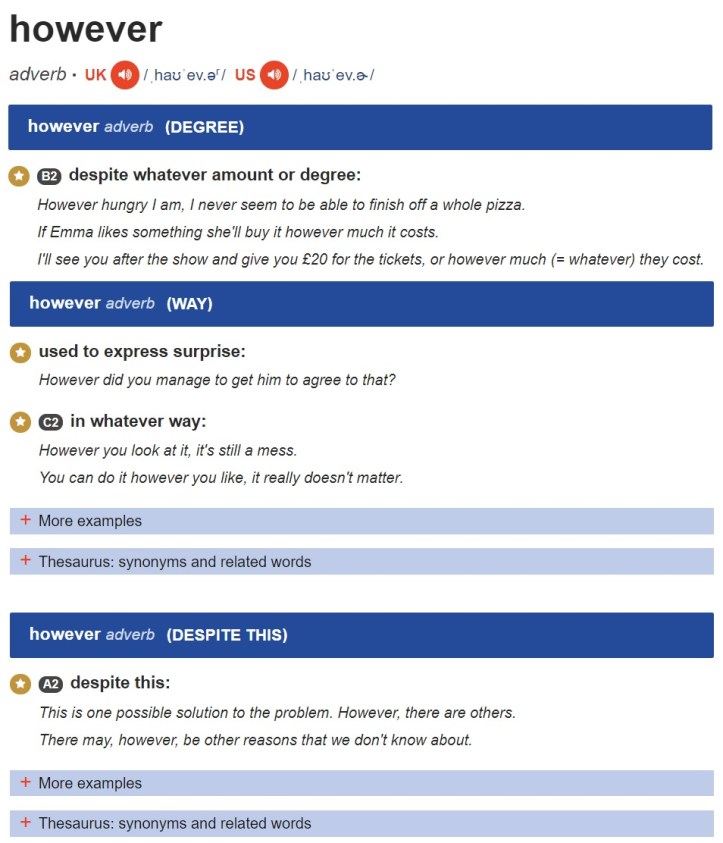Hello Exam Seekers,
Have you started your written assignments? If you did, and you have tried to check some vocabulary at dictionary.cambridge.org you have probably come across numbers and symbols like these:

But what do these numbers mean?
These numbers and letter come right before the meaning of a word at online Cambridge dictionary because they have a relation to the CEFR and the examinations.
For example:

Can you see an “A1” next to the meaning of the word above? This means that the word BUT with the meaning of conjunction used to introduce an added statement, usually, something that is different from what you have said before is an easy word that learners at an A1 level according to the CEFR should know.
When we tell our students that they should use more difficult or fancier words, we mean that they should use words there are above A1 level, for example:

As you can see, the word HOWEVER has different meanings to different levels. If you are an A1 student, you probably haven’t heard this word, as an A2 student, you should understand it as “despite this“, if you are a B2 student, you should understand it as “despite whatever amount of degree“, and if you are at C2 level, you should understand it as “in whatever way“.
This also goes for English examinations. If you are taking Young Learners exams or the KET, for instance, you shouldn’t be aware of the word however and its meanings. On the other hand, if you are sitting for the CPE you should recognize all the meanings.
Therefore, if you are sitting for an exam, you can expect these words to show up because they want to test your level of vocabulary and language knowledge. So if you are taking the B2: First, for example, and you are at Part 1 or Part 2 of the exam, these words might be the ones expected to be written down or chosen.
Moreover, this is a great way for you to know what kind of language you are using on your assignments. If you don’t know which word to use, or if you think that your assignments are too repetitive, you should check some synonyms at the dictionary to know if the word you plan to use is an A1-A2 word or C1-C2 word. It’s interesting if you try and use words above your level, especially on assignments and examinations, it helps you get a higher mark, and it shows that you have a refined vocabulary.
So be sure to check your vocab and improve it!
Oh! An observation… these marks are only found at Cambridge Dictionary because they are Cambridge examinations and marks.
If you have more questions about these or other topics, please make sure to comment in the comment session below, and follow us on Instagram!!!
Have a nice weekend.
Patty and Eve
